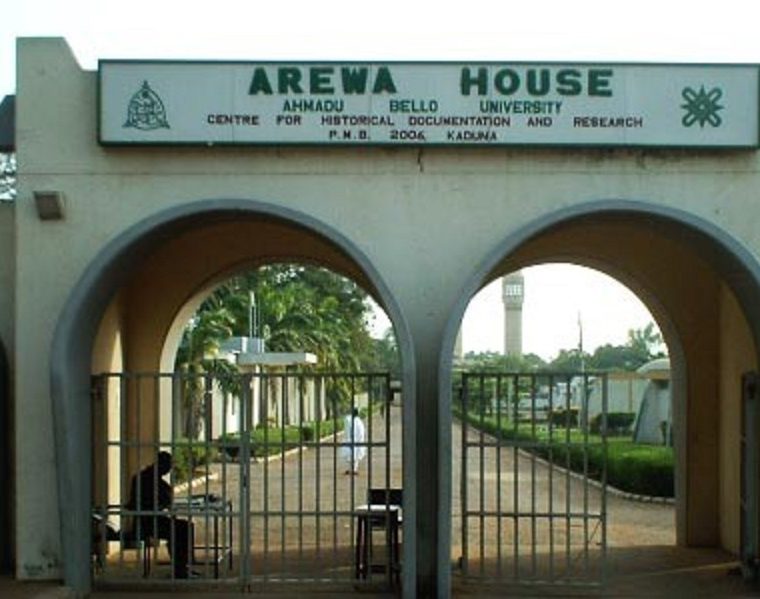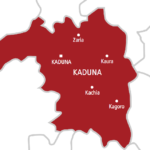Number 1, Rabah Road, houses the iconic ‘Arewa House’, which, some 54 years ago, used to be the official residence of the first Premier of Northern Nigeria and Sardauna of Sokoto, Sir Ahmadu Bello. It was in this residence that he spent most of his public life in service to humanity. It was in this residence that he breathed his last, alongside his wife, Hasfatu on January 15, 1966.
In the aftermath of the bloody coup, the rage continued with the mutineers burning his residence. After his demise, however, friends, associates, and colleagues from far and near deemed it necessary to relive his memory of meritorious and selfless service to humanity.
- FG To Hospitals: Seek Alternative Sources Of Funding
- NLC: Health Workers To Begin Indefinite Strike Soon
That set the stage for the establishment of ‘Arewa House’ in 1970, ostensibly to research and document the diverse cultures of Arewa people.
Similarly, the centre aimed to preserve, the relics and ideals of the Sardauna, while promoting cohesion within the region and entrenching national integration. The centre was under the auspices of the Ahmadu Bello University.
Fifty years on, has the ideals of the Sardauna flourished, or, has his dream of a prosperous and united Arewa, and by extension Nigeria come to fruition?
Described as the land of plenty, the North is an epitome of decorum, peace and harmony. Richly endowed with mineral deposits, fertile and cultivable land; the North has an enviable cultural heritage and values despite its diversity. Simple and accommodating, these and many more, are features which characterised northern Nigeria, and it is well documented.
But at the turn of the century, the North has become the theatre of intra-tribal and ethnic clashes, banditry, kidnapping and other forms of criminality.
How did we end up here, what eroded the tranquillity which the North is identified with? The mindless bloodletting is worrisome and mind-boggling. From incessant massacres and sacking of communities in the North-west to the constant clashes between Fulani herders and crop-growers in the North-central, and, the unending Boko Haram attacks in North-east and the fringes of the Lake Chad, the scenario is grim and scary.
Fifty years on, the level of disconnect between the governed and those in authority is alarming. The recent #EndSARS agitation and the wanton destruction and looting that ensued signalled the extent of the disconnect.
The looting spree, sometimes sanctioned by security operatives, had indicated that hunger and growing disparity between the haves and haves not in the country is boundless.
The disenchantment united both people across regions, creed and political leanings. This clearly had vindicated policy scholars who had long argued that leadership crisis, maladministration and corruption have stagnated economic growth which led to the collapse of the middle-class in the country.
Palliatives meant for society’s most vulnerable were hoarded by governors, from all regions, and across the political divide. This is a testament to the endemic leadership crisis in the country.
Arewa House, as a foremost research centre, should champion the drive toward not only historical and socio-cultural documentation but, proffering solutions to the myriad of problems in the region and the country in general.
The most fundamental and existential threat to the unity of the region is a growing distrust and intolerance amongst its diverse population. So far, interfaith and intergroup relations has adversely been distorted in the region.
For instance, in Kaduna, the demographics and map of the state have inadvertently been redrawn, occasioned by the constant ethno-religious crisis in the 1990s and 2000s. Northern and southern parts of the state are largely inhabited by a particular faith, making such areas exclusively identified by such faith. In Plateau State, a semblance of such distorted demography and relations had manifested. Distrust and intolerance are widespread, and a new normal in most states across the region.
Were the Sardauna alive today, he certainly would have decried such malaise and agony seeing what he had wished for in ruins. He would have wondered why armed bandits would take up arms and render the North-west inhospitable and theatre of war. He would have been shocked at Boko Haram and other Islamist groups insurgency in the North-east and on the fringes of Lake Chad. He definitely would find it more ridiculous how the Fulani herders who had for centuries inhabited the North-central suddenly took up arms against their natural neighbours – farmers.
Arewa House must relive the ideals of the Sardauna, not only in his relics but his persona, grits and ethical countenance. He was a just leader and firm believer in the unity of the North, and the country. The centre should focus more on leadership, security and good governance.
Consciously, Arewa House should, in fact, be a full-fledged THINK TANK with an expanded mandate covering areas like security and technology, political strategy, economic and military policy as well as developmental initiatives.
Fifty years on, the Arewa House, and indeed policymakers owe the Sardauna this much and more, as it must take centre stage in formulating and driving home far-reaching policies that would see the North, and Nigeria within the context the Premier wished for. Anything less is akin to failing him.
Mohammed is with the Department of Political Science and International Studies at the Ahmadu Bello University, Zaria. He writes from Kano.([email protected])

 Join Daily Trust WhatsApp Community For Quick Access To News and Happenings Around You.
Join Daily Trust WhatsApp Community For Quick Access To News and Happenings Around You.

